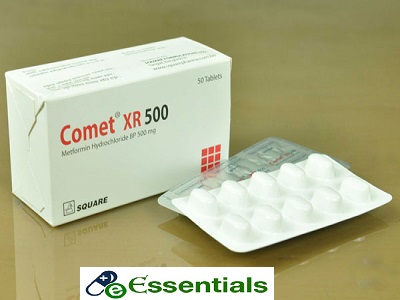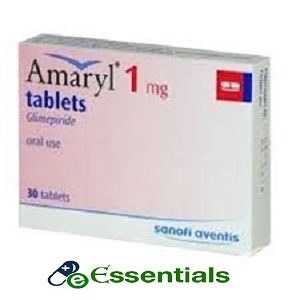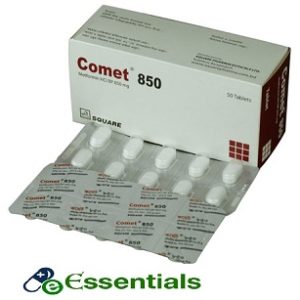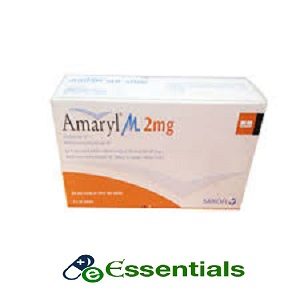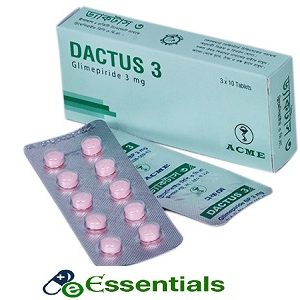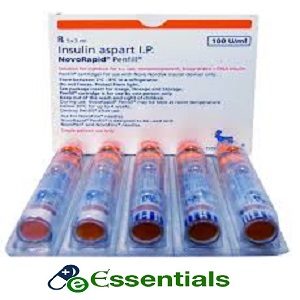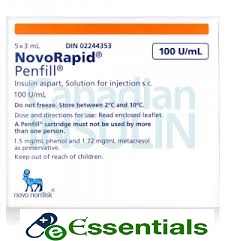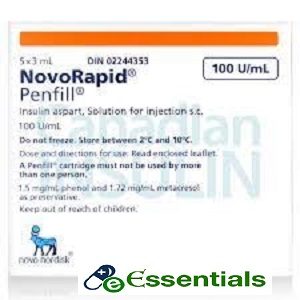Comet XR 500mg 10pcs
৳ 60.20
Brand : Comet XR 500mg
Manufacturer : Square Pharmaceuticals Limited.
Indications
Therapeutic Class
In humans, independently of its action on glycemia, metformin has favorable effects on lipid metabolism. This has been shown at therapeutic doses in controlled, medium-term or long-term clinical studies: Metformin reduces total cholesterol, LDL, cholesterol and triglycerides levels. Unlike sulfonylureas, metformin does not produce hypoglycemia in either patients with type 2 diabetes or normal subjects and does not cause hyperinsulinemia. With metformin therapy, insulin secretion remains unchanged while fasting insulin levels and daylong plasma insulin response may actually decrease.
Dosage & Administration
Adult-
Metformin 500 mg tablet: Initial dosage is 500 mg tablet 2-3 times daily with or after meals, gradually increased if necessary to 2 to 3 gm daily.
Metformin 850 mg tablet: Initial dosage is 850 mg tablet once or twice daily with or after meals, gradually increased if necessary to 2 to 3 gm daily.
Metformin extended release or long acting tablet: The usual starting dose of Metformin extended release tablet is 500 mg once daily with the evening meal. Dosage increases should be made in increments of 500 mg weekly, up to a maximum of 2000 mg once daily with the evening meal. If glycemic control is not achieved on Metformin extended release tablet 2000 mg once daily, a trial of Metformin extended release tablet 1000 mg twice daily should be considered. The maximum recommended dose of metformin is 3 gm daily.
Transfer from other antidiabetic therapy: When transferring patients from standard oral hypoglycemic agents other than Chlorpropamide to Metformin HCl, no transition period generally is necessary. When transferring patients from Chlorpropamide, care should be exercised during the first two weeks because of the prolonged retention of Chlorpropamide in the body, leading to overlapping drug effects and possible hypoglycemia.
Children and adolescents-
Monotherapy and combination with insulin
- Metformin tablets can be used in children from 10 years of age and adolescents.
- The usual starting dose is one tablet of 500 mg or 850 mg once daily, given during meals or after meals.
After 10 to 15 days the should be adjusted on the basis of blood glucose measurements. A slow increase of dose may improve gastrointestinal tolerability. The maximum recommended dose of metformin is 2 g daily, taken as 2 or 3 divided doses.
Elderly-
Due to the potential for decreased renal function in elderly subjects, the metformin dosage should be adjusted based on renal function. Regular assessment of renal function is necessary.
Interaction
Concomitant use not recommended-
Alcohol: Increased risk of lactic acidosis in acute alcohol intoxication, particularly in case of: fasting or malnutrition, hepatic insufficiency. Avoid consumption of alcohol and alcohol-containing medications.
Iodinated contrast agents: Intravascular administration of iodinated contrast agents may lead to renal failure, resulting in metformin accumulation and a risk of lactic acidosis. Metformin should be discontinued prior to, or at the time of the test and not reinstituted until 48 hours afterwards, and only after renal function has been re-evaluated and found to be normal.
Combinations requiring precautions for use-
Certain drugs tend to produce hyperglycemia and may lead to loss of glycemic control. These drugs include thiazide and other diuretics, corticosteroids, phenothiazines, thyroid products, estrogens, oral contraceptives, phenytoin, nicotinic acid, sympathomimetics, calcium channel blocking drugs, and isoniazid. When such drugs are administered to a patient receiving Metformin HCl, the patient should be closely observed to maintain adequate glycemic control. Inform the patient and perform more frequent blood glucose monitoring, especially at the beginning of treatment. If necessary, adjust the dosage of the antidiabetic drug during therapy with the other drug and upon its discontinuation.
Nifedipine appears to enhance the absorption of Metformin. Metformin has minimal effects on nifedipine. ACE-inhibitors may decrease the blood glucose levels. If necessary, adjust the dosage of the antidiabetic drug during therapy with the other drug and upon its discontinuation.
Contraindications
- Hypersensitivity to metformin hydrochloride or to any of the excipients of the medication.
- Diabetic ketoacidosis, diabetic pre-coma
- Renal failure or renal dysfunction (creatinine clearance < 60 mL/min)
- Acute conditions with the potential to alter renal function such as: dehydration, severe infection, shock, intravascular
- administration of iodinated contrast agents.
- Acute or chronic disease which may cause tissue hypoxia such as: cardiac or respiratory failure, recent myocardial
- infarction, shock
- Hepatic insufficiency, acute alcohol intoxication, alcoholism
- Lactation
Side Effects
Pregnancy & Lactation
Lactation: Metformin is excreted into milk in lactating rats. Similar data is not available in humans and a decision should be made whether to discontinue nursing or to discontinue metformin, taking into account the importance of the drug to the mother. May be used during breast-feeding in women with pre existing diabetes.
Precautions
Renal function: As metformin is excreted by the kidney, serum creatinine levels should be determined before initiating treatment and regularly thereafter: at least annually in patients with normal renal function, at least two to four times a year in patients with serum creatinine levels at the upper limit of normal and in elderly subjects. Decreased renal function in elderly subjects is frequent and asymptomatic. Special caution should be exercised in situations where renal function may become impaired, for example when initiating antihypertensive therapy or diuretic therapy and when starting therapy with an NSAID.
Administration of iodinated contrast agent: As the intravascular administration of iodinated contrast materials in radiologic studies can lead to renal failure, metformin should be discontinued prior to, or at the time of the test and not reinstituted until 48 hours afterwards, and only after renal function has been re-evaluated and found to be normal.
Surgery: Metformin hydrochloride should be discontinued 48 hours before elective surgery with general anesthesia and should not be usually resumed earlier than 48 hours afterwards.
Children and adolescents: The diagnosis of type 2 diabetes mellitus should be confirmed before treatment with metformin is initiated. No effect of metformin on growth and puberty has been detected during controlled clinical studies of one-year duration but no long-term data on these specific points are available. Therefore, a careful follow-up of the effect of metformin on these parameters in metformin-treated children, especially pre-pubescent children, is recommended.
Children aged between 10 and 12 years: Only 15 subjects aged between 10 and 12 years were included in the controlled clinical studies conducted in children and adolescents. Although metformin efficacy and safety in children below 12 did not differ from efficacy and safety in older children, particular caution is recommended when prescribing to children aged between 10 and 12 years.
Other precautions: All patients should continue their diet with a regular distribution of carbohydrate intake during the day. Overweight patients should continue their energy-restricted diet. The usual laboratory tests for diabetes monitoring should be performed regularly. Metformin alone never causes hypoglycemia, although caution is advised when it is used in combination with insulin or sulphonylureas.
Overdose Effects
Use in Special Population
Storage Conditions
Brand
Square Pharmaceuticals Ltd




